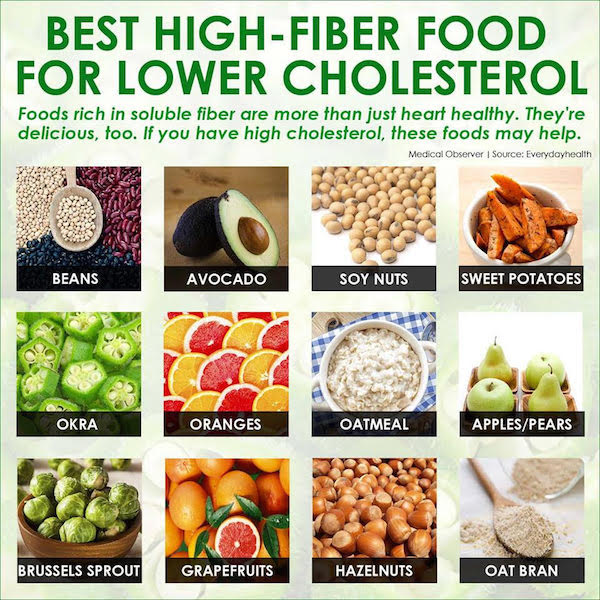 DD HEALTH: Cholesterol is a waxy, fat-like substance that occurs naturally in the body. It plays a vital role in how every cell works – but having too much cholesterol in the blood is one of the risk factors in the development of coronary heart disease.
DD HEALTH: Cholesterol is a waxy, fat-like substance that occurs naturally in the body. It plays a vital role in how every cell works – but having too much cholesterol in the blood is one of the risk factors in the development of coronary heart disease.
One in two Irish people over 50 have high cholesterol and heart disease is still the biggest killer in this country.
It is possible for many people to reduce their cholesterol by 10% – 15% just by eating healthily. Making small but significant changes to the diet is really worth the effort.
In Ireland and Europe generally, it is recommended that levels of cholesterol in the blood should not be above 5.0mmol/l ( about 190mg/dl).
For example, the total amount in the body of a person weighing 70 kilograms (10 stones) is around 140 grams, and the amount present in the blood is 3.6 to 7.8 m.mol per litre or 150 to 250 milligrams per 100 millilitres.
A blood-cholesterol level above 6 m.mol per litre (238 mg per 100 ml) is considered high, depending on age.
A huge number of factors such as genetics, nutrition, exercise and other lifestyle factors can influence the type and amount of cholesterol in the body
There are two kinds that are particularly important.
LDL (Low Density Lipoprotein)-cholesterol, is often called “bad cholesterol”, since it contains a relatively high amount of cholesterol that can build up in the arterial walls. However, HDL (High Density Lipoprotein)-cholesterol is able to remove and carry cholesterol from the arteries and take it to the liver, where it is eliminated – which is why it is often called “good cholesterol”.
Our livers make a lot of our body’s cholesterol, but what we eat also affects our cholesterol levels too. Making the right food choices can really help you to manage your cholesterol and reduce your risk of heart disease as well as other health problems.
Good Cholesterol foods:
. Piece of red meat
. Salmon
. Some eggs
. Lentils
. Garlic bulb
. Unsalted nuts
. Mixed Herbs
Bad Cholesterol Foods:
. Processed meat – Salami
. Bacon
. Block of butter
. Pate
. Biscuits
. Salt
Fats and protein rich foods
Eat less cakes, biscuits, pastries, confectionary, fried foods and take aways as this will help to reduce some of the bad fats in your diet such as trans fats and saturated fats.
Reduce the amount of processed meats you eat (bacon, salami, burgers etc) and limit your red meat to 3 six ounce servings of lean red meat a week.
If you like eggs and your cholesterol is high, you can eat between 4 to 6 eggs per week, unless your doctor advises you to reduce further.
Fish and fish oils
Eating oily fish (such as salmon, trout, fresh tuna, sardines, herring and mackerel) twice a week can help to reduce the risk of heart disease.
Soluble fibre
Eat porridge or unsweetened muesli, fruits and pulses (peas, beans and lentils).
Fruit and vegetables
Eating at least five portions of fruit and vegetables a day can help to reduce your risk of heart disease.
Irish men, especially in the younger age group only eat about half the recommended portions of fruit and vegetables, according to the Irish Heart Foundation. In general, we eat less fruit and vegetables than other EU countries. However, it is important to eat at least five portions every day, including:
• Fresh vegetables, cooked or raw.
• Salads.
• Potatoes eaten in their jackets, without added fat.
Salt
Reducing the amount of salt you eat will also help keep your blood pressure down. Look out for hidden salt in certain breads, breakfast cereals, processed meats and cheese, dried soups and sauces, salty crisps and nuts.
Alcohol
Too much alcohol can damage the heart muscle, increase blood pressure and also lead to weight gain. However, moderate drinking (between 1 and 2 units of alcohol a day) can help protect the heart in men aged over 40 and women who have gone through the menopause.
Also try to exercise regularly.
Tags:







